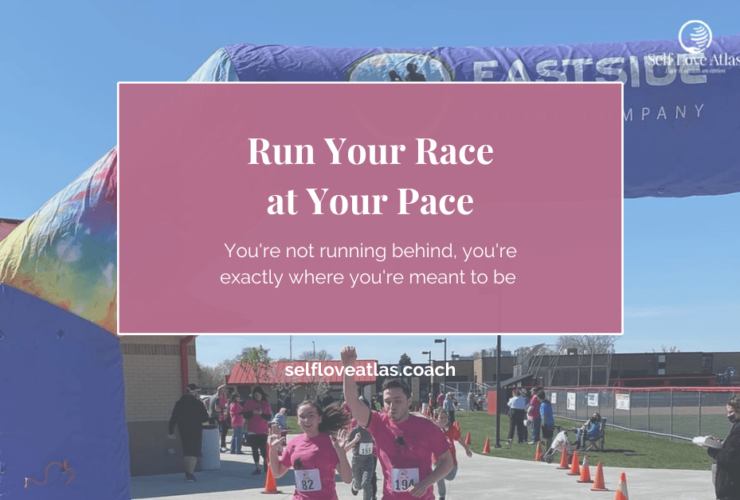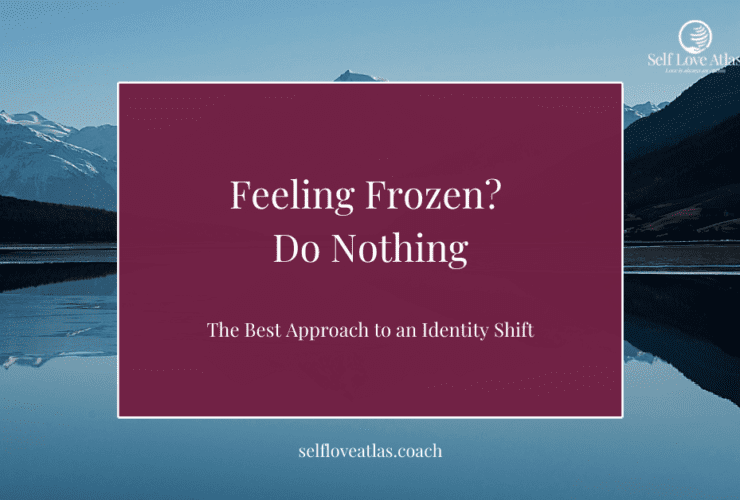The Downside of Doing Your Best
When I was growing up, everyone told me to do my best, but nobody told me that doing your best could backfire, big time. Trying hard and doing your best can reap many rewards in your lifetime, but what happens if you overdo it?
If you identify as a busy person or a hard worker, this post is for you. Here, you’ll learn the downside to doing your best all the time, as well as how to avoid making a mistake that could literally ruin your life.
The Pressure of “Do Your Best”
When I was told to do my best in school, I picked up that torch with eagerness and did everything I could to the best of my ability.
For a while, this worked out great. I got good grades, was heavily involved, and received a lot of positive feedback from the adults in my life. But under the surface, problems were emerging that would completely undercut the benefits.
“The value we’ve placed on hard work is not normal, it’s cultural.“
Self Love Atlas
Somewhere along the line, I picked up the motto, “as long as I do my best, I can’t blame myself if I fail.” I repeated this over and over again to motivate myself to do (and be) better every day.
On the surface, this motto sounded very compassionate. It sounded like permission to avoid being hard on myself when things didn’t go my way. And in my mind, this motto meant I was willing to accept whatever reality dealt to me, as long as I tried my best.
But it never really played out that way.
When I failed at something, I’d blame myself no matter how hard I had tried.
The motto did not protect me from my own self-criticism. Because without a defined idea of what it meant to “do my best,” I’d always question whether I actually had. Then, I’d bash myself if I could find evidence that I could have tried harder.
Usually this appeared in the form of thoughts like…
- “I could’ve stayed up later.”
- “I could’ve studied more.”
- “I could’ve prepared better.”
- “I could’ve been more efficient.”
- “I could’ve been more productive.”
And therefore,
- “My effort was not enough.”
- “I’m not enough.”
- “This is all my fault.”
- *Insert mean self-talk that benefits no one*
Now that I look back on it, I was usually trying the best I could. But if I didn’t succeed, then I’d assume “Well, I must not have been trying hard enough then!”
Many workaholics (like my past self) would say “That’s good! That way you can motivate yourself to do better in the future!”
But in reality, this leads to a vicious cycle where you try harder and harder while your health and happiness steadily declines.
While you certainly can use your own self-criticism to “motivate” yourself, I can guarantee you that this is a recipe for burnout, low self-worth, and an intensity that subtracts from your ability to enjoy life.
If we don’t define what “doing our best” means for ourselves, we risk taking it too far.
We risk believing that no amount of effort is enough effort, and hurting ourselves in the process.
That’s exactly what I did.
Note: Trying insanely hard isn’t always a good thing. If someone else seems to be trying harder than you, this is not a reason to beat yourself up or think “I should be doing more.” What other people do has nothing to do with what you should be doing. Read that again. And chances are, if someone is trying harder than you feel capable of doing, they might be unknowingly sacrificing their physical, mental, and emotional health to do it.
The more I repeated my little motto to myself, the harder I tried at everything. School, work, volunteering, clubs, etc.
Eventually, this led to a completely unsustainable lifestyle.
It involved working/studying/and participating in extracurriculars from 8AM to 3 or 4AM almost every day, sleeping a few hours a night, then drinking copious amounts of espresso based coffees to compensate.
There were many days where I was so exhausted that I’d burst into tears without warning. On busy days, I’d have stress induced chest pain and take 2 minute naps between classes/meetings to help make it through the day. After this became a habit, I’d get sick, and stay sick, for months at a time.

Without adequate sleep, my body couldn’t get well.
Looking back, I can’t believe I EVER did that to myself.
My health has never really been the same since. So if you don’t place limits on what it means to do your best, I’m living proof that it WILL pose very real consequences to your health and wellness.
(Not everyone will take it to this extreme, but based on conversations I’ve had with dozens and dozens of college students, this experience is not uncommon. )
Some of you might be thinking “Well duh, of course you shouldn’t work to the point where it harms your health.”
But the cultural messages we receive throughout our lives say otherwise. Anytime someone praises us for being smart, measures our intelligence with testing, or simply asks us “what do you do for a living?” There’s an implication that our ability to perform is somehow determinant of our worth.
So a lot of people work hard because they want to be worth something. They work after hours and exhaust themselves because they’d rather be exhausted and accomplished than, god forbid, viewed as unproductive. (For the record, we are all worth something regardless of our productivity. But we’ll talk more about inherent worth in future posts.)
Once, I remember my international politics professor saying “Most of Western Europe works to live, they work to enhance their quality of life, but America lives to work.”
And at that, my heart sank. Because that statement alone demonstrated that the value we’ve placed on hard work is not normal, it’s cultural. And that pressure had shaped a lot of my life up to that point.
This is the sort of thing our schooling doesn’t teach us. Our culture so firmly values hard work and achievement that health, balance, and happiness often are secondary thoughts.
Redefining What it Means to Do Your Best
I used to think “doing your best” meant “try as hard as you possibly can.” But if people actually tried as hard as they could (physically), they’d probably injure themselves. So that level of effort really isn’t the best thing to strive for physically, mentally, or emotionally.
Our efforts shouldn’t be based on doing as much as humanly possible. Instead, they should be based on a well-rounded and reflective perspective of what we truly want out of our lives.
For example:
Do we want to be healthy? Do we want to treat people well? Do we want to take care of ourselves and the things that are important to us? Because if we “try our best” at our careers only, then those other things might get put on the backburner.
Since our energy is finite, we can’t possibly put every ounce of effort into professional goals without sacrificing or detracting from other things that are important to us. So instead of doing your best to do the most, why not do your best to maintain balance and make your actions reflect what is truly important to you?
Journaling Exercise:
If this way of thinking feels new to you, I highly recommend taking a few minutes to journal about what you really want out of life outside of work and school. Then, brainstorm how you can start facilitating those things in your life now. Feel free to use the following prompts to help facilitate your reflection.

In Conclusion, Doing Your Best is not About Doing More.
It’s about balancing your life in a way that promotes well-being (for both yourself and others).
Trying harder at everything will not save you from your own self-criticism, and effort towards your goals without limits can cause you to lose sight of other things that are important.
So instead of trying to reach an unattainable “best,” try doing your best to create and maintain balance in your life. It is a complex and ongoing challenge in itself, but it’s far less exhausting, much healthier, and honestly blissful.
Did this post resonate with you? If so, I’d love to hear from you! Leave a comment or send me a message to share your thoughts. For more uplifting content, check out some other posts on my blog, follow me on instagram @morgan_barbret, or sign up for the Self Love Atlas Newsletter!
Cheers,
Morgan Rita Barbret





